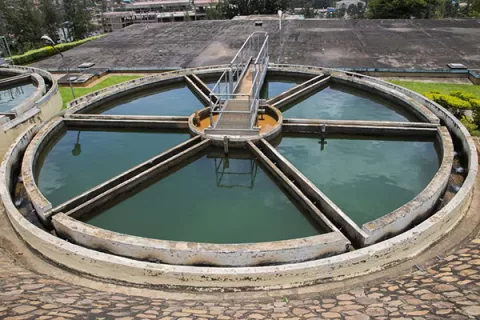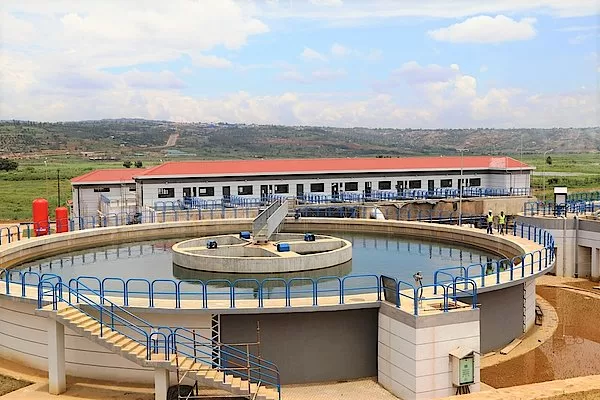Construction works on the Kigali waste treatment plant nears completion at 70% in Masaka Sector, Kicukiro District. These highlights were noted by Rwanda’s Minister of Finance and Economic Planning, Yusuf Murangwa. The minister provided updates while presenting the 2024/2025 budget revision proposal to Parliament. Once completed, the facility is expected to improve water quality and reduce unnecessary wastewater flow. The project is also expected to mitigate wastewater flow into Lake Victoria through regional river systems. Rwanda’s Water and Sanitation Corporation (WASAC) noted that the plant will be completed by the year’s end. The entity hopes the plant will be fundamental in ensuring proper waste disposal and treatment. It is expected to have a capacity of 500 cubic meters of fecal sludge per day. WASAC noted that these estimates depend on nature-based and energy-efficient treatment processes.
Also read:
Upgrade works of Zandvliet Wastewater treatment in South Africa on track
The Scope of Implementation on the Kigali Waste Treatment Plant
The Kigali waste treatment plant is expected to receive funding from various local and international entities. The Lake Victoria Basin Commission has already secured grants from both the German government and the European Union. Germany’s government is funding the project through the investment and development bank KfW. The commission is expected to add the remaining grant amount that would be used to run the plant in its initial operations. Information from the program notes that the plant is expected to cost an estimated $10 million.

In June 2022, WASAC signed an agreement with Lake Victoria Basin Commission to construct the plant. It is in line with the national integrated water supply and sanitation master plans. Moreover, the plan is aligned with Rwanda’s Vision 2050 and intends to ensure sustainable water supply. It will also ensure sanitation services to the country. The project is expected to have positive environmental and social benefits as it will not only improve access to clean water. Furthermore, it will improve sanitation in the beneficiary cities. This will positively impact the lives of beneficiaries.
Also read:
Construction of East Africa’s largest wastewater treatment plant almost complete
Upgrade works at Rooiwal Wastewater Treatment Works in South Africa Good Progress

Leave a Reply